I typically go through between twenty to thirty books a year, and heavily supplement them with internet discussions and reading. Below are the books I read or listened to in full in 2023, and why you may find them interesting. Click on the covers to go their respective purchase or pdf pages. Some are not available for purchase as ebooks, or are absurdly overpriced. They can be found for free on libgen. I encourage you to purchase books that are priced at $45 or less to support the authors. Anything more expensive is almost certainly an academic publication aimed at gouging university libraries.
History of the Civilizations of Central Asia, Volume I - by UNESCO
Covering an area roughly bounded by Gansu to the east, Iran to the west, Rajputana to the south, and Lake Baykal to the north; this book is a collection of monographs on specific regions and times by relevant experts in 1992, rather than a narrative. As a result, it is quite uneven. Some parts are quite speculative, with one writer suggesting that the Kelteminar people later migrated south and became the historical Kassites. Other parts are stupefyingly dry discussions of archaeological finds, but important to read as they are needed information in fleshing out the DNA research of the last few years. Some parts hold up very well - for instance the authors were able to correctly understand the paleolithic and early Holocene connections of human populations in Iran and northwestern India on basis of lithic technology and skull morphology alone.
Tropical Gangsters by Robert Klitgaard
I read this on Bronze Age Pervert’s recommendation (it’s been a never-ending source of amusement how a guy who I first came across on Salo Forum in 2011 is now a well-known political writer). It’s a quick read, an a fairly amusing portrait of life in 1980s Equatorial Guinea after the fall of the insane dictator Macias. The majority of the population of Equatorial Guinea is of the Fang ethnicity, one of the countless Bantu peoples. They had yet to understand civilization by the time of the author’s visit, with a witch doctor clique reigning over a savage population incapable of even basic industrial maintenance (the Chinese that the author speaks too had helped build electric infrastructure under Macias - only for it to be looted). Ethnography is interesting, author comments on how security forces were dominated by Moorish mercenaries, while bureaucracy and business were dominated by mulatos and half-Indians left over from the Spanish period. Much like USian inner cities, local life was typically matriarchal and polygamous, a guaranteed recipe for poverty and instability.
The Great Boer War by Byron Farwell
Despite the British narrator for the audiobook, the author Farwell was an American. Nonetheless, his source material and time in Britain clearly rubbed off him and gave him a British style - most noticeably in understatements and type of character judgements. There is little social or demographic history here, instead Farwell gives a “history as biography” treatment to the Second Boer War. He drops a Boer, an Englishman, an American, or a German into the narrative; describing how they came to the war, and how their experiences were shared by many. Particularly notable were the differences between the British and Boer commanders. The Boer commanders were extremely fecund, with few having fewer than six children, while the British commanders were often bachelors or had fewer than four children. Most of the book is a military history that will be interesting to some, but not others - similar in many ways to the Eastern Front of WWI 20 years later with both mobile cavalry units raiding supply lines as well as infantry and artillery battles from trench lines.
Still a Pygmy by Isaac Bacirongo
The Rwandan Genocide and the two Congo Wars of the 1990s and 2000s are generally written about by outsiders due to the poverty of the Great Lakes region and focus on the brutal Tutsi-Hutu conflict. However, there are many other peoples in the region - among them the Pygmies and part-Pygmies like the author’s people the BaTembo. The author describes the first Europeans in his home region in eastern Congo as hardly affecting the local Pygmies or Bantus, as well as the casual violence and promiscuity that permeated both Pygmy and Bantu society. Bantu racial theories are discussed, with the neighboring Shi Bantus considering Pygmies to be subhuman, but also to possess magical powers as a result of their closer ties with nature - an interesting glimpse into emergent racial ideologies at a point prior to their crystallization in academia and politics. The author was a genius by the standards of both his people and the Bantus, running a successful business with international supply chains. The Tutsi play a sinister role in the narrative, being portrayed as supermen capable of dominating masses of their enemies through a mixture of superior intelligence, cunning, and will. After a productive life in the Congo, the author flees Tutsi rule to be a refugee and welfare parasite in Australia.
Nation, Language, Islam by Helen Faller
I checked this out on Kamil Galeev’s recommendation - it’s a nice read not just for what it tells about the situation of the Tatars of Tatarstan in the 1990s and 2000s (the majority ethnic group of the region, but a minority in Russia), but more generally of sub-state nations such as my own (the Americans). The authoress actually learned to speak Tatar, and lived in the region for some time. She describes the healthier and more religious culture of the relatively (by Russian standards) rustic Tatars, but also how that culture had little appeal to the best and brightest, ensuring brain drain and Russian acculturation without explicit state support for Tatar ethnicization. State interference in historical memory is also discussed in the book, with Russian and regional academics doing their best to avoid creating ethnic tensions. Popular writers, as well as extremists, were however able to tell the truth.
The Last Years of the Teutonic Knights
I listened to Urban’s other book on the Teutonic Knights last year, and got a lot out of its portrayal of the endless raiding, counter-raiding, fortification, and resettlement that characterized most of medieval warfare. Contrary to the title, the book only reaches the 1410s (decade after the Order’s disastrous defeat at Tannenberg) at the halfway point, and the last fifth covers what I would have thought of as the “last years of the Teutonic Knights” - the Thirteen Years War to the secularization of the Order’s Prussian territories in 1525. It was an enjoyable and quick read, and along with Peter Wilson’s Heart of Europe is a good counterpoint to the Special Path theory of 20th century German militarism - notably by pointing out how few Prussian noble families descended from Order knights, and how they instead largely descended from mercenaries from Czechia, Silesia, and eastern Germany granted lands in lieu of payment after the Thirteen Years War.
The Armenian People from Ancient to Modern Times by Richard Hovannisian
A Twitter mutual let me know that Levon Yepiskoposyan was working on an Armenian ancient DNA paper, so I read this in preparation. Sadly he hasn’t published his results, so I’m reluctant to write on Armenian prehistory and history at length. Along with Sagona’s Caucasus archaeology book and some reading on Central Asia, it implies that the South Caucasus and Central Asia seem to thrive when Mesopotamia and Iran are in decline, and vice versa. The book also implies that the Levant-shift of Armenians shown in the Southern Arc DNA paper is related to Christian migration in the early 1st millennium AD, although I still can’t rule out that it happened during Tigranes the Great’s conquests.
Battle Cry of Freedom by James McPherson
I enjoyed the two Oxford History of the United States volumes that preceded and follow this one back in 2017 and 2018, so thought I’d finally give it a read. It was pleasantly surprising how evenly handed McPherson was in his treatment of the conflict - I’d been worried it would devolve into a demonology of southern society. The military history part of it wouldn’t be new for most of you, but the discussion of the factions within the Democratic and Republican parties, as well as their class, religious, and economic bases would be. The Republicans, based as they were in the small towns and among individual proprietors, struggled with the challenges of industrialization and urbanization as well as non-Protestant immigration from the very beginning. The book’s age shows - it denies the blacks agency and sees them as largely passive spectators to their own destiny.
The Last Empire of Iran by Michael Bonner
The Sassanids rarely get much of a treatment in the history of the Classical Age or Late Antiquity - quite understandably given the dearth of sources. Bonner’s book is an excellent resource to fill in the lacuna. The most important impressions that the book gives are 1) how Roman-Sassanid cooperation was essential in keeping the both the steppe tribes to the north and the desert tribes to the south at bay 2) the degree to which Mesopotamian, Caucasian, and Levantine migration remade Iranian society - notably through the spread of Nestorian Christianity 3) the staggering devastation of the final round of conflicts with Rome that opened up the Middle East to the Arab conquests while crucially preserving the Iranian Plateau from fighting, which allowed for the local gentry to regenerate Persianate culture and identity in the succeeding centuries & 4) the weakness of Zoroastrian belief, which was barely weathering the spreads of Manichaeism and Christianity even before the rise of Islam. The centralization of religious authority as well as the calcification of religious practices made Zoroastrianism brittle, and unable to compete with the dynamic evolution of rival faiths.
Timurids in Transition by Maria Subtelny
Nice and quick read on the difficult 15th century evolution of one of the Timurid states from a Turkic-dominated tribal structure to an Iranian administered bureaucracy. I wrote about it here.
Inner Dimensions of Islamic Worship by al-Ghazali
Collection of 12th century writings of one of the most famous of the Persian mystics relating to spiritual practice. “Those who are so learned about rare forms of divorce can tell you nothing about the simpler things about the spiritual life, such as the meaning of sincerity towards God or trust in Him.”
The History of the Civil War in Tajikistan by Iraj Bashiri
This goes well with Torch of New Russia in describing the breakdown and reformation of political authority in the aftermath of the Soviet collapse. Unlike Ukraine however, Tajikistan had a parallel power structure in waiting around which opposition forces could gather - the Soviet Islamic clerical establishment which had been asserting itself since the mid-1980s. Much as in post-2014 Ukraine, the establishment proved itself capable of reform and was able to hold off its challengers.
America: The Epic Story of Spanish North America, 1493-1898 by Robert Goodwin
A decent listen, but too disjointed to be a truly good book. It can and should be read as separate chapters, rather than as a unified narrative. My suspicion is that is how Spanish North America should be studied as well. It was notable how similar the Christianization of the American Southwest was to the Islamicization of Timurid Central Asia, with corrupt and ill-educated clerics leaving the masses of the population in ignorance and superstition. Only certain small religious groups were capable of moving society forward, and even then they required extensive state support. Book’s portrayal of New Mexican society goes well with Fehrenbach’s books on the Comanche and Mexico, as it shows how its decadence left it weak and for the taking.
Muhammed: his life based on the earliest sources by Martin Lings
This is a straightforward, linear narrative of the life of the Prophet of Islam done in modern English but Biblical style. The audio book narrator does an excellent job in conveying the style through speech. I recommend looking at a map of Classical Arabia prior to reading or listening. Bonner’s Sassanid book (brief review above), is advisable at reading before this, as it places Arabia in the context of the 7th century Middle East - in particular relating to the arrival of Coptic slaves, the First Hegira to Ethiopia, and the struggle between the monotheists (pro-Roman) and polytheists (pro-Sassanid).
In Praise of Blood by Judi Rever
A revisionist take on the Rwandan Civil War - not in the sense that Rever denies the Hutu genocide of Tutsis, but rather that the victorious Tutsis covered up evidence of their own ethnic cleansing operations. In line with other works, the Tutsis are described as vastly more capable than any of the other peoples of the Great Lakes region. The book made me wonder how much we can ever really know about the specifics of modern conflicts since factions in even the poorest parts of the world have sophisticated media and narrative management policies that reach across the world.
The Cambridge History of Iran, Volume 4
In line with archaeology, this work implies that it wasn’t inevitable for a state to dominate the entirety of the Iranian Plateau. Instead, Khuzestan, the Caspian coast, and Khorasan could have been their own states if it hadn’t been for broader historical processes driving state consolidation in the second half of the 2nd millennium. Also makes a decent case that spread of Islam was helped rather than hindered by its internal divides as they allowed for peripheral groups (Khorasanis at first, Daylamites later) to become part of and benefit from the Islamic world without having to yield to faraway religious figures of dubious piety. Parts of the book have been superseded by more recent research, or are of doubtful veracity.
The Burgundians: A Vanished Empire by Bart Van Loo
A dull listen, I recommend against getting this. Only really interesting points are 1) that Black Death expanded popular piety by enriching the survivors and thus allowing them to purchase religious objects as well as travel on pilgrimages and 2) the gradual consolidation of the Burgundian state (roughly Netherlands, Belgium, and eastern France) in the 14th and 15th centuries was likely going to make it a major European state had it not been dismembered - a fate that was and could have been shared by other medieval realms.
Eurasian Crossroads by James Millward
Quite interesting read, if you have any interest in Central Asia or the Uyghurs I strongly recommend. Author implicitly argues that the decision of a Sufi community to betray both the Dzungars to their north as well as the Qing to the east in the 18th century doomed the Uyghurs in the long run. The Qing crushed them (having previously little interest in the Tarim prior to the Sufi betrayal - supplying troops in the region was extremely expensive), and ensured that they would remain a peasant people who never developed true elites such as those which enabled the Mongols, Tibetans, and Uzbeks to throw off colonial rule in the 20th century.
A History of Byzantine State and Society by Warren Treadgold
One of my favorite reads of all time, certainly better than the Byzantine books by Brownworth and Oman. It goes well with Bonner’s Sassanid book, as well as El-Hibri’s Abbasid book. It lays out the depopulation of the Empire in the Dark Ages, its brittle revival under the Macedonians, and its fragmentation in the last four centuries in great detail. The section on the escalating conflicts with the Abbasids in the 8th and 9th centuries is particularly good - the two feuding empires bled each other out over decades, forcing them both to draw in more and more immigrants to populate their lands and fill the ranks of their armies, ending disastrously for both. More opinionated than normal for a history book - Treadgold has a dim view of the Macedonian Dynasty in particular for the same reason as Hovannisian (reviewed above) - the replacement of the decentralized territorial militias with professional troops both weakened the ability of locals (like Hovannisian’s poor Armenians) to defend themselves in absence of imperial forces while also raising wealth inequality and the stakes of intrigues in Constantinople, ensuring political instability.
Kingdoms of Faith by Brian Catlos
Annoying as his anachronistic references to modern culture and politics are (“Make Al-Andalus Great Again”, “bling, bros, and biyatches”) it’s quite a good read. As in all things, history was far more complicated than that of a multicultural Andalusian paradise or a fanatical Islamic theocracy based on slavery. The book interestingly describes the Andalusians as their own nation; not as Berbers, Arabs, or Moors - and how they persisted in exile for decades after their expulsion from Spain. Fragility of the Islamic states compared to their Christian rivals is notable - the institution of the Caliphate of Cordoba centralized authority (crucially religious as well as political) and left its successors lacking legitimacy, forcing them to rely on unreliable classes for support (one dynasty relied on a Jewish warlord who spent much of his time battling the Keraite Jews rather than the realm’s enemies) while new Christian rivals would always grow again from the hardy social skeleton provided by the Catholic Church. Unfortunately certain important parts of the Andalusian history - such as how the Sufis came to be reconciled with the initially hostile Maliki ulema - are left undiscussed.
The Great Lakes of Africa by Jean-Pierre Chretien
While perhaps an understandable reaction to racially reductionist texts from the colonial era, it’s a pointless post-modernist work filled with irrelevant French theory. Don’t waste your time on this.
The Road to Mecca by Muhammad Asad
The 20th century saw the efflorescence of the Ashkenazim in countless areas. Muhammed Asad was part of that efflorescence, although in an unusual manner as a Moslem convert, journalist, and diplomat. It’s an interesting and quick read. The framing story is the author’s journey to Mecca, upon which he reminisces on his thoughts, relationships, and experiences. Among those experiences are his research into the Ikhwan Rebellion on the behalf of their Saudi enemies, his travels around Iran during Reza Khan's rise to power, his participation in the Senussi’s war against Italy, & his encounters with early Zionists - including Weizmann.
The Abbasid Caliphate: A History by Tayeb El-Hibri
This overlaps heavily with Cambridge History of Iran Volume 4, though of course naturally focuses more on events in Iraq. Notable how the Abbasid dynasty, which overthrew the Umayyads to become the successors (caliphs) to the Prophet Muhammed in the mid-8th century, converged to a similar role as the Japanese emperors and Catholic popes. They possessed only a nominal amount of political authority after defeats in the early 10th century, but were able to assert considerable spiritual authority deep into the 13th century even though were largely reliant on secular powers for protection. While the Abbasids were regaining political authority in the early 13th century, the author strongly suggests that it was about about to be squashed by the mighty Khwarazmians before they were both destroyed by the Mongols.
The Beginnings of the Ottoman Empire by Clive Foss
This goes well with Treadgold’s Byzantium book. While I enjoyed it, I doubt many of you would - it isn’t a historical narrative and instead focuses on reconciling Byzantine and Turkish accounts with archaeology and geography. In line with Byzantine history, it portrays an empire capable of dealing with large states like the Seljuk Sultanate of Rum and the Mongol successor states diplomatically, but incapable of dealing with smaller pastoral states like those of the Ottomans. Byzantium’s repression of provincial efforts at self-defense and overcentralization left it vulnerable to the nimble and energetic efforts of Osman and his successors.
The Balkan Reconquista & Turkey's Forgotten Refugee Crisis by William H. Holt
Quick and interesting read on the ethnic cleansing of Moslems from Bulgaria during and after the 1877-1878 Russo-Turkish War. 19th century saw the demographic consolidation of a number of imperial peoples who had previously been quite thin on the ground (Russians in the Eurasian steppe and Siberia, Americans in the Trans-Mississippi, Chinese in Xinjiang, Japanese in Hokkaido, Mexicans in the Sonora, etc), and the Ottoman Moslems in their Balkans territory were going to be part of that pattern. Bolstering their ranks with Circassian and Tatar refugees, Moslems were nearly a majority of the population of Bulgaria in the 1870s after centuries of being a small ruling minority. Like the Chinese who were largely eradicated from Xinjiang during China’s mid-19th century miseries, the Moslems of Bulgaria were largely expelled - in their case by Russian troops and Bulgarian irregulars rather than an Uzbek warlord. Had they not been expelled, they would have likely reduced the Bulgarians through poverty-induced starvation and created a Rumelian nation in the Balkans rather than becoming Turks in Anatolia. Instead, the Bulgarians retook their home and enjoyed a population boom, quadrupling in number after centuries of stagnation. Author has a bleeding heart, but is honest and finishes the book with a chapter with the best discussion of historical memory and identity formation that I’ve read.
What did you you all read this year? Anything that you particularly recommend? Next year I’m aiming at getting a vague understanding of East African history.



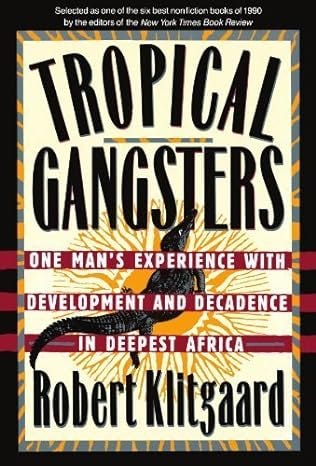

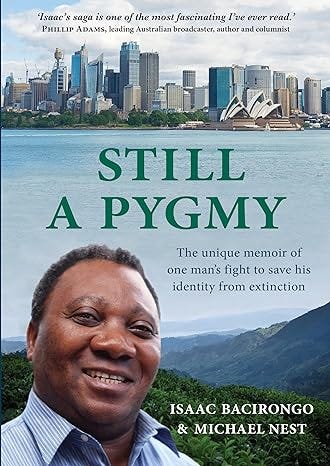

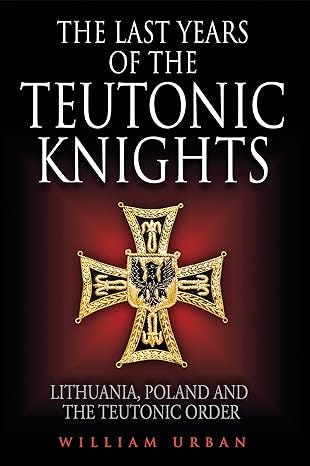
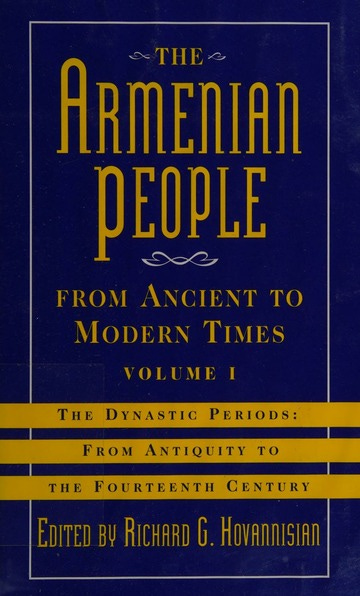

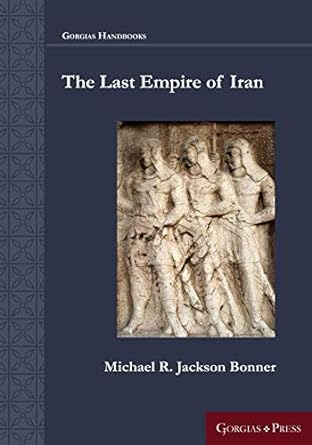



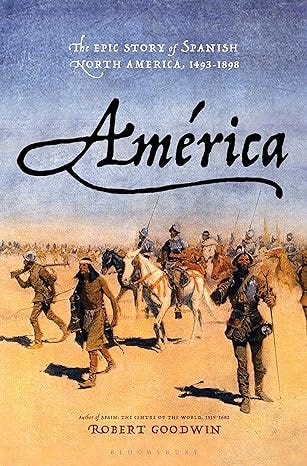
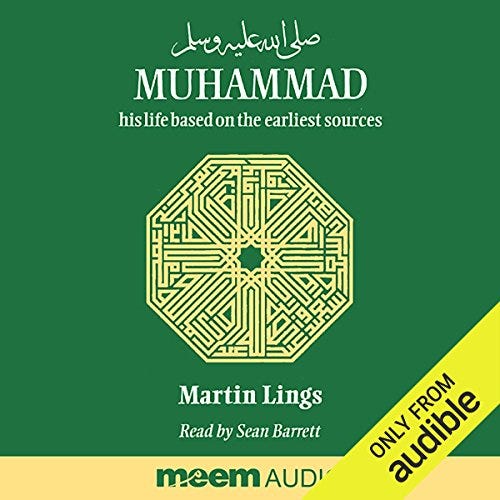
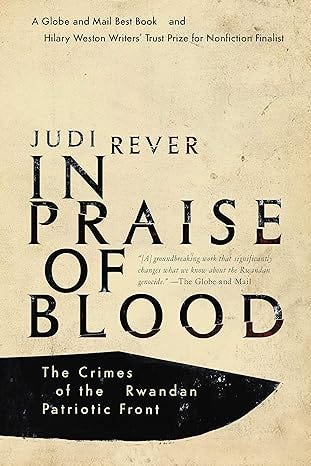
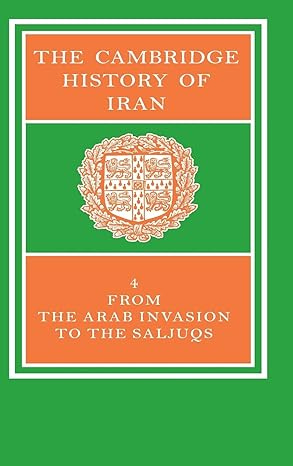
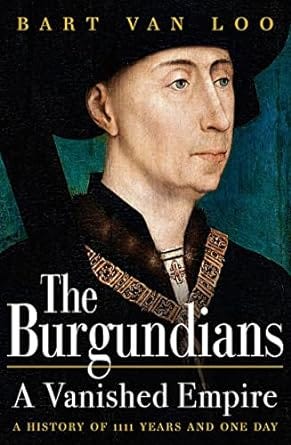

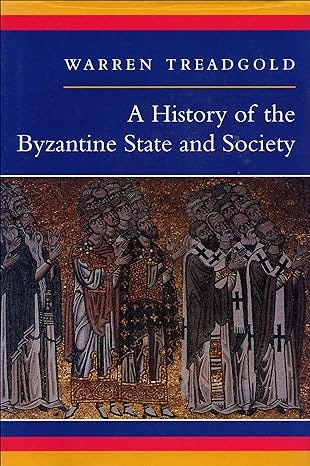

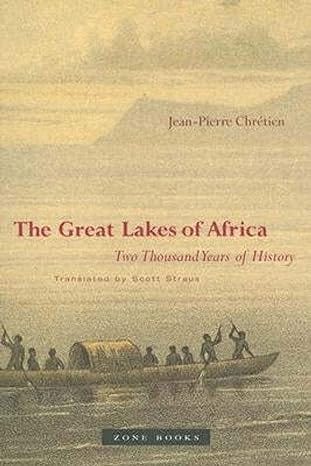

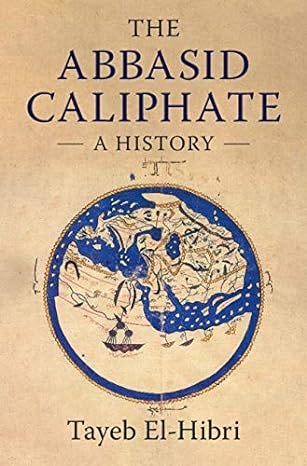

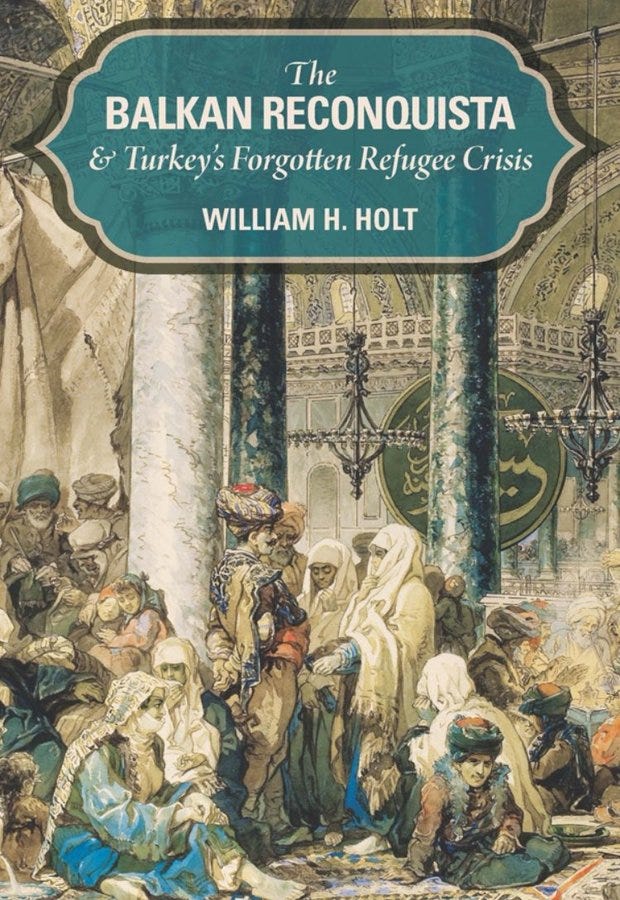
“it’s been a never-ending source of amusement how a guy who I first came across on Salo Forum in 2011 is now a well-known political writer” lol I was only a kid during the golden age of Salo but what a place it must have been; you, BAP, Nic, T777, etc...the day it went down was a sad one indeed.
This is like the nerdiest (in best way) year end reading lists. Few books I’ve heard of, but almost all I now want to read. Thank you so much.